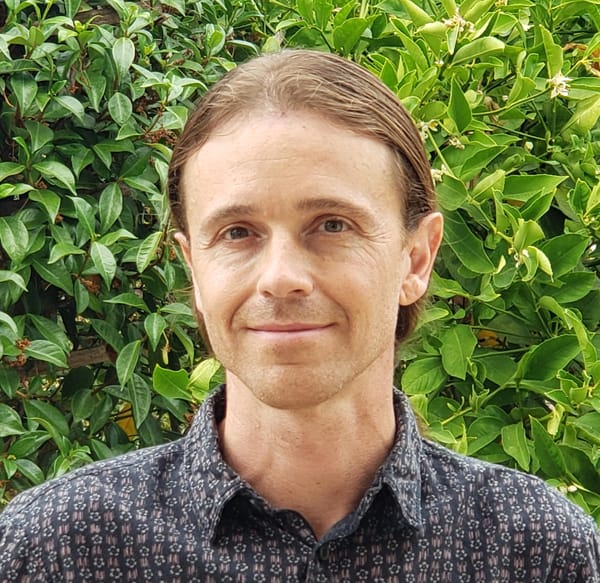VALLEJO – The Vallejo City Council on Tuesday examined several new options to provide temporary housing modeled on examples from other California cities, such as warming centers, sanctioned car parking programs and mobile home parks or other temporary residences with job training and other support services.
The council received the information at a special meeting on homelessness on Tuesday and city staff researched a variety of programs implemented by other cities throughout California to generate a list of possible projects to address homelessness in Vallejo.
The presentation came as Vallejo seeks ways to grapple with a regional epidemic of homelessness. Assistant City Manager Gillian Hayes said that although some projects are complete or are nearing completion the city’s most recent point-in-time count indicates that there are 700 houseless individuals in Vallejo.
The city recently completed a new permanent supportive housing project on Sacramento Street that it expects to be full later this month, a similar project is under construction on Broadway Street and is expected to open later this year, and a planned navigation center is expected to break ground soon. But even when all of these projects are complete, Vallejo will not have shelter space for everyone who is homeless in the city and Hayes said city staff needs direction from the council on how to address the crisis.
The potential options being explored by the city include sanctioned RV parking, car parking and tent camping sites, among others.
Staff estimated that a safe car parking site that would be open between 7 p.m. and 7 a.m. would cost the city $250,000 to $450,000 a year or about $10,000 per vehicle. In similar programs elsewhere in the state that city staff reviewed, 25% to 65% of participants went on to find permanent housing.
However, one of the programs that staff reviewed in this category prioritized veterans, families, seniors and college students so the housing outcomes were significantly higher than less restrictive programs, which generally range from 25% to 35%.
Cost estimates for safe RV parking sites came in at $370,000 to $1.2 million per year or $18,000 to $27,000 per vehicle. It would be significantly more expensive than overnight vehicle parking sites because it would remain open for 24 hours, requiring additional staffing and services such as RV waste disposal. In similar programs in Sebastopol and Santa Rosa, 23% to 45% of participants obtained permanent housing.
A safe tent camping program would cost $31,000 to $61,000 per tent per year. The higher costs of this program are due to the installation of basic infrastructure to provide electricity, water, restrooms, showers and additional staff and security needed to run the program safely. According to city staff, 11% to 35% of participants in comparable programs went on to permanent housing.
One of the example programs that city staff studied was Camp Hope in Martinez, which was run in large part by volunteers so the costs for the program was $3,000 to $4,000 per tent per year. Camp Hope closed in December and program organizers said that the volunteer model proved difficult to sustain. The program had no security staff but Vallejo city staff interviewed a founder who said that, in hindsight, security staff would have been helpful.
Staff indicated that all of the camping programs that they recommend would include security and fencing to ensure that only participants of the program are at the site.
Another option that staff presented for consideration was keeping the warming shelter open from November to April instead of intermittently, based on weather conditions. Staff estimated that a warming shelter open 7 days a week would cost $25,000 to $125,000 per month.
Further complicating the city’s efforts, a planned navigation center that is expected to open next year will not be able to accept children under 18, and staff recommended building an additional navigation center that would be available to families.
Assistant to the City Manager Natalie Peterson said that the city’s current efforts to clean encampments costs the city an average of $2,100 per day for four public works employees, two dumpsters and providing security at the site during the clean up.
The city posts notices at the camp 72 hours ahead of a clean up, but Councilmember Peter Bregenzer asked that the city staff begin posting notices online as well so organizations or community members can easily access the information. Peterson said that she would make the notices available on myvallejo.com.
The council also heard from numerous residents of the Olympia Mobile Home Park – located just off Yolano Drive on a wedge of land between Highway 37 and White Slough – who were frustrated with encampments in the area.
The San Francisco Bay Trail runs next to the mobile home park, but residents say that they no longer feel safe using the trail because of the encampments.
“People used to walk and ride their bike on that trail and now it's very dangerous to walk through there,” said Carmen Estrada, a resident of the Olympia Mobile Home Park.
Shannon O'Brien, a resident of Olympia for 26 years, said she regularly hears gunfire and it is terrifying for her and her children. Residents said that they often find needles and there are several abandoned cars in the area and in the water of the slough.
An Olympia resident who identified herself as Savannah C. expressed understanding that people living at the encampments have pets that will warn them if someone approaches their camp, but said that some dogs behave aggressively so she can no longer jog on the bay trail.
“There is no place for us to go immediately in that area, there are really no nice, pleasant places, we have to go at least a mile or two miles away to get somewhere nice to go jogging and just get exercise,” Savannah C. said.
She said that the city used to trim the bushes along the trail and empty trash bins in the area but now garbage is piling up and people are using the area to dump their trash
Peterson said that city staff has met with county supervisors, local state representatives and the flood and wastewater department to work on addressing some of the concerns of the Olympia residents and that the city has removed eight abandoned cars from that section for the bay trail.
Mayor Robert McConnell said that the Bay trail traverses both private and public property and this determines what enforcement options are available to the city.
“As we know the Boise case has prohibited us from moving people off public land unless there is a bed for them,” McConnell said, referring to Martin v. Boise, a 9th Circuit Court of Appeals decision that prohibits cities from removing homeless people from public property if there is not adequate shelter space available.
“The biggest problem” said McConnell, “is that we don't have enough housing and all these temporary housings are designed to move people from temporary housing to permanent housing but the reality is that we don’t have any permanent housing. The city is not going to be able to financially solve this problem. It is going to take state and federal dollars to do so.”
McConnell asked staff to prioritize the projects outlined in the presentation according to which projects could offer the greatest impact with the city’s limited funding and then return to council to approve the projects based on that information.
Before you go...
It’s expensive to produce the kind of high-quality journalism we do at the Vallejo Sun. And we rely on reader support so we can keep publishing.
If you enjoy our regular beat reporting, in-depth investigations, and deep-dive podcast episodes, chip in so we can keep doing this work and bringing you the journalism you rely on.
Click here to become a sustaining member of our newsroom.
THE VALLEJO SUN NEWSLETTER
Investigative reporting, regular updates, events and more
- Housing
- homelessness
- government
- Vallejo
- Vallejo City Council
- Vallejo City Hall
- Gillian Hayes
- Blue Oak Landing
- Broadway Street Project
- Camp Hope
- Peter Bregenzer
- Olympia Mobile Home Park
- San Francisco Bay Trail
- Carmen Estrada
- Shannon O'Brien
- Robert McConnell
- Martin v Boise

Ryan Geller
Ryan Geller writes about transitions in food, health, housing, environment, and agriculture. He covers City Hall for the Vallejo Sun.
follow me :




